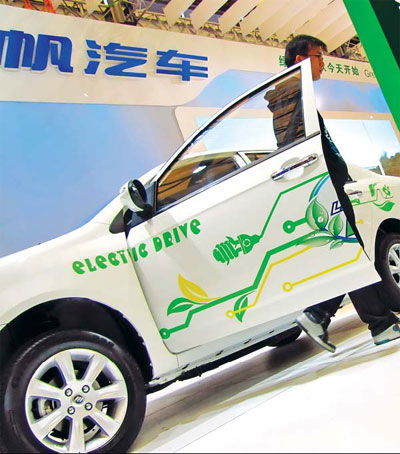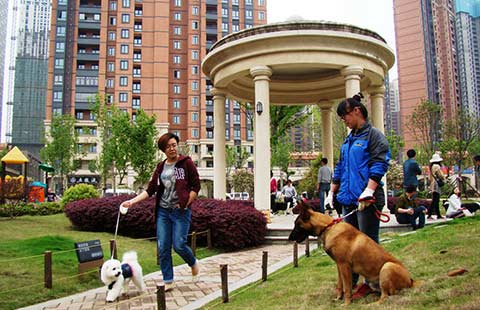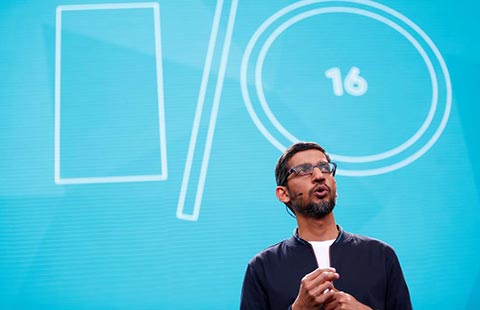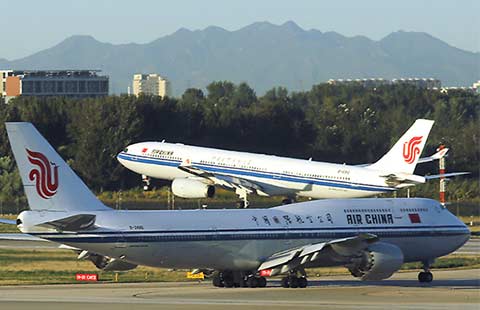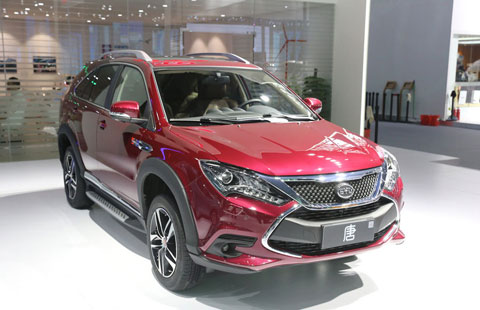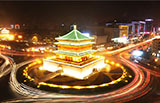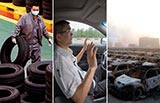Limits revised to promote green autos
By Han Tianyang (China Daily) Updated: 2012-08-07 14:27
|
Energy-saving and eco-friendly vehicles are expected to soon have a greater presence in China. Jing Wei / For China Daily |
New measures set aside licenses for green vehicles
Last week, the Guangzhou city government added new measures encouraging eco-friendly vehicles to regulations released a month ago that limit the number of auto license plates granted each year.
The latest policy said that 10 percent of the yearly quota of 120,000 license plates - that is 12,000 a year or 1,000 every month - will be allocated to alternative energy vehicles, including all-electric autos, plug-in hybrids and hybrid vehicles that can save more than 20 percent fuel consumption compared to cars with conventional engines.
Consumers have to join a lottery to win a license plate to own such vehicles and will also be eligible to get 10,000 yuan in subsidies from the government.
Analysts are calling it good news for automakers of hybrid vehicles, which have been far less popular in China than in the United States.
Winners of the lottery will prefer the hybrid vehicles as a more practical choice compared to electric vehicles. All-electric cars cost more and require charging facilities, which are still relatively scarce, they said.
Toyota Motor Corp is supposed to be a main beneficiary in this regard. Its local joint venture in Guangzhou makes the hybrid Camry.
Honda Motor Co, which also has a joint venture plant in Guangzhou, previously said it plans to locally produce hybrid cars in China in 2013 at the soonest.
In addition, half of the quota will be allocated to conventional internal combustion engine automobiles through a lottery. But the new clause says that the winners - including individuals and organizations - are only allowed to buy cars with engine displacement below 2.5 liters and buses.
The additional requirement about engine displacement is for the purpose of saving energy and reducing emissions, according to the local government.
And the remaining 40 percent are reserved for public auction, where buyers can choose vehicles with any size of engine without restriction.
Effective from this July to June next year, the test policy has made Guangzhou the fourth city on the Chinese mainland to limit car purchases, following in the footsteps of Shanghai, Beijing and Guiyang, the capital of Guizhou province in the southwest.
Analysts said that it could be a trend that more cities in China will take similar measures because traffic congestion and air pollution are increasingly affecting people's lives in the urban areas.
But for automakers, it means fiercer competition, and the challenge is especially affecting domestic brands, analysts say.
Guangzhou's new car sales are expected to decline significantly under the new policy, analysts said. Last year, the city registered 330,000 new vehicles, nearly three times the quota under the new regulations.
'A painful decision'
"It is a painful decision by a responsible government," Guangzhou Mayor Chen Jianhua told local newspaper Guangzhou Daily.
The number of Guangzhou's vehicles has been surging in the past few years at an average annual growth rate of 10 to 20 percent, and it is currently more than 2 million now. At the same time, the amount of roads in the city has increased by less than 2 percent, he said.
In May this year, 27 percent of the roads in the downtown area were congested during rush hour and estimates show that a year from now, the problem will affect more than half of the roads, the mayor said. "If we wait until the city has 3 million vehicles to implement the policy of limiting car plates, it will be too difficult to improve then."
He noted that the measure is just part of Guangzhou's plan to improve transportation, and the city will build new subways and add more buses for the convenience of residents.
The money from the auction of car license plates will all be used for improving public transportation and environmental protection, he said.
A controversial clause of the new regulation is that when organizations and individual buyers purchase a new vehicle to replace their used one, the new vehicle should have an engine with displacement no higher than the old one.
"I bought a 1.5-liter car for two years and want to swap it for a 1.6-liter car, but now I can't because of the new policy," a local resident posted his trouble on an online forum of the official website of the city government.
Some suggested that the clause should be changed to allow for a reasonable range of engine displacement for current car owners to choose from when buying a new car. Otherwise, a driver of a small car has to drive a small car forever.
The government has not replied to the online suggestions so far. But the mayor previously said that the new measure is not final and in the one-year pilot period, the government will listen to the opinions from the public and discuss better solutions.
hantianyang@chinadaily.com.cn
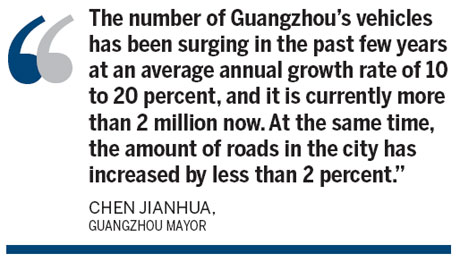
- Shanghai Disneyland tickets sell out for first two weeks
- China to import goods worth $10 trillion over next 5 years
- Germany's Freudenberg on the hunt for M&A in China
- China Railway Engineering to win global share with independent technology
- HK regulator says Alibaba deal broke code
- Car2go's strong first month in Chongqing
- Apple, 'Orange' deal a punch, give the lie to rhetoric
- Canon eyes teenagers, seniors to boost camera sales in China
